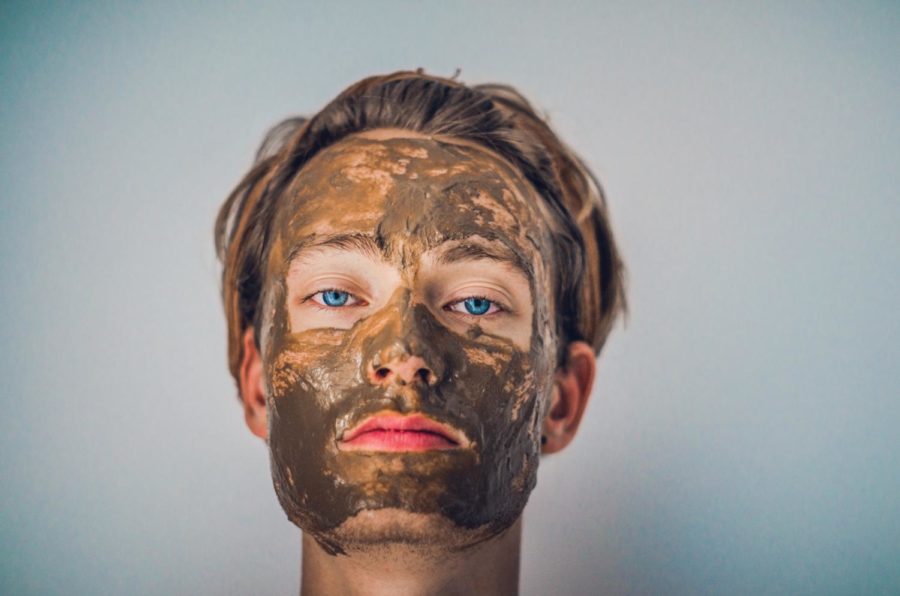Should you be putting raw ingredients in your home made facial masks?
March 22, 2021
Homemade face masks are a great alternative to spending lots of money on expensive products, but there are some ingredients to be careful of.
Macy Mcfee is an esthetician in Ames that graduated from PCI Academy last fall. She now works at It’s All About Me Boutique & Spa in northern Ames.
“I specialize in teen acne facials,” Mcfee said. “We use the product line Dermalogica which is good for all skin types. There’s a lot of different formulas for different skin types and we just customize it to each client.”
With the pandemic, many people have been making their own face masks from the comfort of their own home. It’s an easy way to social distance, but still indulge in some selfcare.
“I have nothing against homemade face masks. However, you won’t get as drastic results from them as you would if you came into the spa and get an actual facial because the ingredients we use in our professional products are more abrasive and more targeted to whatever problem we’re concerned with. As for the DIY ingredients, they’re just basic and they’ll still help your skin, it just won’t be as drastic,” Mcfee said.
Some ingredients in homemade face masks can provide good benefits to your skin. They can provide anti-inflammatory properties as well as hydration to the skin.
“A few ingredients that are common in homemade face mask recipes are honey and oatmeal,” said Mcfee. “Honey is a natural anti-inflammatory so it’s going to help keep your skin calm. It’s also a low-risk ingredient, so it’s good to use on all skin types including dry, oily, acne prone skin. Oatmeal is also anti-inflammatory so it will help keep skin less red and irritated. Greek yogurt is also a good ingredient because it has lactic acid which will act as a light exfoliator. If you mix those three ingredients together that would get you a pretty good homemade face mask,” she said.
To give a face mask that smooth consistency it may be useful to add some oils. This will help it apply easier and hydrate the skin as well.
“Some oils that could be used in a face mask would be avocado oil, olive oil, argan oil, sunflower oil and grapeseed oil. These are pretty common oils that I’ve seen in a lot of recipes,” Mcfee said.
Another good ingredient to use in face masks is green tea. It acts as an antioxidant in a face mask.
“You just make the green tea beforehand and then just mix it into the mask. Blending the ingredients so it’s a smoother consistency and less grainy, will help it go on smoother and to apply it smoother,” Mcfee said.
Now that we’ve discussed some of the good ingredients to put in homemade face masks, let’s delve into some ingredients that you might want to pass on.
“Coconut oil is a hit or miss for me. It’s good to use on your body like on your arms or legs as a moisturizer. However, on the skin, I think it clogs your pores more than it helps you. I would avoid using coconut oil on your face,” Mcfee said.
Citrus fruits and juices should be avoided in face mask recipes. They can cause a lot of irritation and many other negative effects.
“I would avoid using lemon juice on the skin. Citrus is really abrasive to the skin and is prone to cause irritation. It also makes skin more sensitive to UV rays,” Mcfee said.
Essential oils can be very harmful to add in a face mask. They can cause irritation and can cause breakouts if you have sensitive skin.
“Essential oils have to be diluted and of good quality for them to work in a face mask. You don’t want to go to Five Below and buy essential oils because they aren’t good quality. They will burn your skin and it won’t end well. If you get good quality essential oils and dilute them in sunflower oil or argan oil, there isn’t an issue. Just make sure you dilute them right,” McFee said.
There are some myths when it comes to skincare and what ingredients work well and what ingredients don’t work well.
“You have to be careful of using spices in your cabinet, like cinnamon,” Mcfee said. “Another thing to stay away from is using toothpaste and baking soda on your pimples. Please don’t do that, it will dry up your skin and won’t be good. Fragrance is a hit or miss for me. If you have sensitive skin it can really cause damage.”
You have to be careful with what type of skin you have when you are creating your own face mask. If you have sensitive or acne prone skin, you should use more basic, simple ingredients that won’t cause irritation or inflammation.
“If you have sensitive skin or acne prone skin, you don’t want to put acids or anything like that on without consulting an actual professional and getting a regime mixed in. If you already have a skincare regime like a cleanser, toner, exfoliator, retinal oil, etc., you want to be careful mixing in the DIY stuff. Consult with a professional and make sure it’s good for your skin type,” Mcfee said.
Overall, homemade face masks can provide benefits to the skin and are an easy way to pamper yourself. Just make sure you use research and use ingredients that will provide benefits to your skin type.
“I have used homemade face masks in the past, but I would prefer to just come in for a service to get it professionally done. It’s easier, let someone else pamper you,” Mcfee said.







